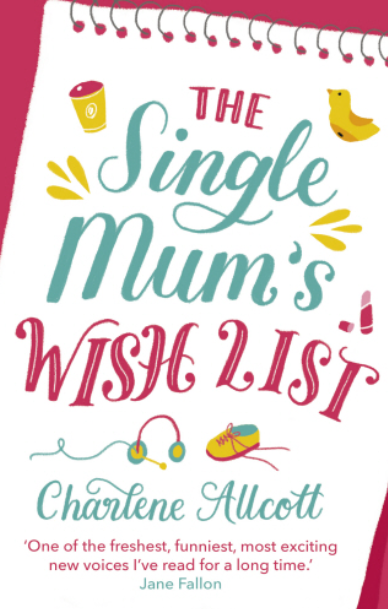Charlene Allcott, author of The Single Mum's Wish List, offers thoughts on the importance of how to start treating your writing like a job.

When I tell someone I’ve got a novel coming out, I’m often asked how I did it. Generally, I claim that I just typed for as long as it took to write a book. It sounds simple but anyone who’s tried to assemble IKEA furniture knows, things that sound simple can be unfathomably complicated. Balancing writing my novel with work and parenting proved to be a challenge and only became easier when I decided to treat writing like a job. If you’re struggling to get beyond that first chapter, here are some tips on becoming a professional before you get paid.
Do your research. You wouldn’t start a new job without asking where the photocopier was. Before you even begin typing find others in the industry and ask them about their journey to publication. It might be motivating to identify agents and publishers in your area of writing and to research competitions and grants (making note of deadlines.) Get clear about who you want to target when the time is right; it will help you keep your eye on the prize.
Set a goal. Of course, the goal is to finish a book but that’s like sitting down to a whole pie. You want to start with that first slice – so set something achievable. Perhaps a target of three chapters or a rough draft and remember to include a realistic timeframe. You’ll need small wins to keep you focused, remember you’re learning on the job and it’s best to give yourself an induction period.
Tell someone about it. It can be hard to be your own boss; being open about your endeavours could give you one of the fastest routes to professionalism – accountability. One of the things that keeps us motivated at work, sometimes the only thing, are the regular prods from our superiors and/or clients. Let your friends take the role of a demanding customer. There’s nothing more frustrating than friends and family asking about the progress of a book that’s not being written. Let one person you trust in on your overall goals and monthly targets, preferably someone kind but pushy.
Set a schedule. Don’t pretend you’ll write when you have time because that time will never come. Look over your calendar for the next few months and schedule in your writing hours. If you find it impossible to do this, choose what you’re going to give up. Yes, you like Zumba but is Zumba your job? If something doesn’t pay your bills or feed your soul, it can be eliminated for time to write.
Commit. Write yourself a contract and sign it. Promise to sue yourself if you breach it. When you have a job, you show up; you show up when you’re not in the mood or had a few too many gins the night before. If the workforce operated on a ‘when it feels right’ basis society would come to a standstill. Some days will be bad, many will be better – it all counts.
 Protect your time. Others won’t take your writing time seriously if you don’t. Humans (and pets) don’t like change, especially change that may mean you have less time to devote to them. Show those around you how fiercely devoted you are to writing time and they’ll soon fall in line. Ignore any protests that ‘it’s just a hobby’ – a hobby is a passion we are not yet paid for. For parents it’s important to demonstrate to your children that you are dedicated to your art. Don’t feel guilty about taking the time for yourself. Writing regularly will make you a happier person and a happier person is a better parent, spouse and friend.
Protect your time. Others won’t take your writing time seriously if you don’t. Humans (and pets) don’t like change, especially change that may mean you have less time to devote to them. Show those around you how fiercely devoted you are to writing time and they’ll soon fall in line. Ignore any protests that ‘it’s just a hobby’ – a hobby is a passion we are not yet paid for. For parents it’s important to demonstrate to your children that you are dedicated to your art. Don’t feel guilty about taking the time for yourself. Writing regularly will make you a happier person and a happier person is a better parent, spouse and friend.
Find some colleagues. One of the best things about working in a team is having others in the same boat to whinge with. When you start to write you’re gonna need to build your team. Friends may be supportive but they won’t understand when you have a crisis about your protagonist’s name. Find a writing group or online community as soon as you start. Don’t believe the mean little voice in your head who whispers you’re not ready, you’re a writer the moment you commit.
Take annual leave. It’s essential to take breaks, even from the things we love; burnout is a possibility with any job. Think about how revived you feel when you return to work after a well-earned holiday. It’s been my experience that scheduled rest improves productivity and promotes creativity; when I don’t give myself a week off I find I take the time anyway but spend it staring at an empty word document.
Give yourself an appraisal. A good boss regularly reviews progress and you’re your own boss now! Go back over your targets and if you’ve exceeded them, push a little harder. If things haven’t gone to plan, make changes or look for support - writing is as much about the process as the product. If you meet any of your writing goals, have a meal out or a chocolate hobnob. Celebrate the achievement because it is one.
Comments